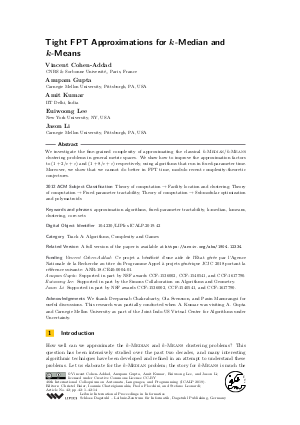LIPIcs.ICALP.2019.42.pdf
- Filesize: 0.54 MB
- 14 pages

 Creative Commons Attribution 3.0 Unported license
Creative Commons Attribution 3.0 Unported license
















Feedback for Dagstuhl Publishing